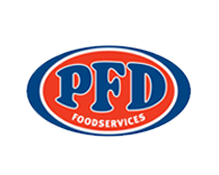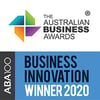Statistical Pattern Recognition
Statistical pattern recognition:Statistical pattern recognition is the branch of statistics that deals with the identification and classification of patterns in data. It is a type of supervised learning, where the data is labeled with class labels that indicate which class a particular instance belongs to. The goal of statistical pattern recognition is to learn a model that can accurately classify new data instances based on their features.
The topic of machine learning known as statistical pattern recognition focuses on finding patterns and regularities in data. It enables machines to gain knowledge from data, enhance performance, and make choices based on what they have discovered. The goal of Statistical Pattern Recognition is to find relationships between variables that can be used for prediction or classification tasks. This article will explore the various techniques used in Statistical Pattern Recognition and how these methods are applied to solve real-world problems.
The importance of pattern recognition lies in its ability to detect complex relations among variables without explicit programming instructions. By using statistical models, machines can identify regularities in data that would otherwise require manual labor or trial-and-error experimentation by humans. In addition, machines can generalize from existing knowledge bases to predict new outcomes more accurately than before.
Statistical Pattern Recognition is becoming increasingly important within many industries due to its ability to automate certain processes as well as providing valuable insights into large datasets that may otherwise remain hidden beneath the surface. With this article, we aim to provide an overview of different techniques used for identifying patterns within data and explain how they are employed in solving practical problems effectively.
What Is Statistical Pattern Recognition With Example?
Statistical pattern recognition (SPR) is a field of data analysis that uses mathematical models and algorithms to identify patterns from large datasets. It can be used for various tasks, such as handwriting or speech recognition, classification of objects in images, and natural language processing. SPR employs several techniques including vector machines, neural networks, linear discriminants, Bayesian methods, k-nearest neighbors and other feature extraction algorithms.
In terms of applications, SPR has been successfully applied to problems like cursive handwriting recognition and automated medical diagnosis. In the case of handwriting recognition, an algorithm works by extracting features using a feature extraction algorithm then matching them with existing model parameters. The same principle applies when solving more complex tasks such as image classification where deep learning may be employed instead of traditional methods like discriminant analysis. Similarly, machine vision systems use SPR techniques to identify objects within an image and classify them according to specific criteria. Furthermore, modern robotics also utilize SPR concepts to enable robots to recognize their environment better iRobot Roomba Vacuum Cleaner being one example.
By combining different types of data transformations alongside statistical modeling approaches such as supervised learning algorithms and unsupervised clustering techniques, it is possible to uncover new insights from data sets which could otherwise have gone unnoticed. With the help of advancements in computing power and technologies like artificial intelligence (AI), this area continues to grow rapidly allowing us to investigate further into the world of big data.
What Is Statistical Pattern Recognition In Cognitive Psychology?
A method of cognitive psychology known as statistical pattern recognition employs learning algorithms to detect patterns in data automatically. This technology can be used for shape recognition, where features such as the size and orientation of the object are extracted from an image using feature selection techniques and then converted into a feature vector input which describes the identity of the object. The classification approach uses this information to classify objects or events according to their properties, with Bayesian pattern classifiers being one of the most common methods. These optimal classifiers use probabilities rather than hard limitations on parameters when making decisions about how to group different classes together; they also allow for prior knowledge about certain groups of objects or events to be taken into account when doing so. By combining these two elements—feature extraction and classification—statistical pattern recognition enables accurate automatic recognition processes.
What Are The 3 Components Of The Pattern Recognition?
Statistical pattern recognition is a cognitive psychology technique used to identify patterns in data. It has three components: unsupervised classification, signal processing, and structural pattern recognition. Unsupervised classification uses algorithms that classify items into groups without any prior information about the groups or labels assigned to them. Signal processing involves extracting meaningful signals from noisy sources like audio files, images and videos. Structural pattern recognition deals with recognizing shapes and objects in an image using various techniques such as automatic number plate recognition (ANPR).
Accuracy in recognition systems depends on the parameter vector which describes each item being classified by its features. Probabilistic pattern classifiers are often used for this purpose along with discriminant analysis techniques for feature extraction. Machine learning methods also play an important role in statistical pattern recognition as they use ensemble learning techniques to combine multiple models of machine learning together to increase accuracy.
Is Pattern Recognition A Cognitive Skill?
Pattern recognition is a cognitive skill that involves the automatic analysis of data to identify patterns and classify them. It can be applied in various fields, such as speech recognition, image recognition and feature detection. In order to perform pattern recognition tasks accurately, models must be developed which are able to detect features within datasets and represent these through probability distributions. For example, supervised learning algorithms such as neural nets or principal components analysis (PCA) may be used for feature selection and posterior probability calculations for class probabilities.
In addition, when dealing with large datasets it is important to select appropriate features using automated methods like PCA or feature extraction techniques which rely on statistical measures like mean-shift clustering or histogram equalization. Furthermore, by using machine learning techniques based on probabilistic graphical models such as Bayesian networks we can achieve higher accuracy rates than traditional approaches due to their ability to capture complex dependencies between variables. However, all of these methods require careful tuning so that the model’s performance stays optimal over time. By understanding how different kinds of pattern recognition systems work and how they interact with each other, it is possible to develop more effective solutions for real-world problems.
Conclusion
Statistical pattern recognition is an important analytical tool in many fields. It has been used to identify patterns in data and make predictions based on those patterns. The three components of the pattern recognition process are feature extraction, classification, and decision making. These processes allow for insights into complex datasets that may not be immediately apparent from visual inspection alone.
In cognitive psychology, statistical pattern recognition can be used to understand how cognition works. By analyzing patterns in behavior or other measures of cognitive functioning, researchers can gain insight into the underlying processes involved in a person's thinking and problem-solving abilities. This knowledge can then be applied to develop interventions designed to improve these skills.
Pattern recognition is also considered a cognitive skill due to its ability to detect patterns and plan ahead. This allows people to better anticipate future events or outcomes based on past experience, allowing them to effectively plan their actions accordingly. Understanding this concept is essential for any profession that requires analysis of complex data sets - such as business analysts or engineers - as it gives them the tools necessary to accurately assess information quickly and come up with solutions faster than ever before.
PREVIOUS NARROW AI GLOSSARY TERM
NEXT NARROW AI GLOSSARY TERM
Statistical Pattern Recognition Definition
Exact match keyword: Statistical Pattern Recognition N-Gram Classification: Statistical pattern recognition systems, statistical learning methods, feature extraction Substring Matches: Statistical, Pattern, Recognition Long-tail variations: "Statistical Pattern Recognition Systems", "Statistical Learning Methods", "Feature Extraction" Category: Technology, Computers Search Intent: Research, Solutions Keyword Associations: Machine Learning, Artificial Intelligence, Data Mining Semantic Relevance: Machine Learning, Artificial Intelligence, Data Mining Parent Category: Computers Subcategories: Machine Learning, Artificial Intelligence and Data Mining Synonyms: Artificial Intelligence and Data Mining Similar Searches: Machine Learning Algorithms , Supervised and unsupervised learning techniques Geographic Relevance: Global Audience Demographics : Students , Researchers , Developers Brand Mentions : Google AI , Microsoft Azure MLStudio Industry-Specific Data : Neural Networks , decision trees Commonly used modifiers : "systems" ,"learning","Algorithms" Topically relevant entities : Machine Learning Algorithms , Supervised and Unsupervised learning techniques , Neural networks , Decision Trees , Google AI , Microsoft Azure ML Studio."Larry will be our digital expert that will enable our sales team and add that technological advantage that our competitors don't have."
Kerry Smith
CEO, PFD Foods
$1.6 billion in revenue 
"Lion is one of Australasia’s largest food and beverage companies, supplying various alcohol products to wholesalers and retailers, and running multiple and frequent trade promotions throughout the year. The creation of promotional plans is a complicated task that requires considerable expertise and effort, and is an area where improved decision-making has the potential to positively impact the sales growth of various Lion products and product categories. Given Complexica’s world-class prediction and optimisation capabilities, award-winning software applications, and significant customer base in the food and alcohol industry, we have selected Complexica as our vendor of choice for trade promotion optimisation."
Mark Powell
National Sales Director, Lion
"At Liquor Barons we have an entrepreneurial mindset and are proud of being proactive rather than reactive in our approach to delivering the best possible customer service, which includes our premier liquor loyalty program and consumer-driven marketing. Given Complexica’s expertise in the Liquor industry, and significant customer base on both the retail and supplier side, we chose Complexica's Promotional Campaign Manager for digitalizing our spreadsheet-based approach for promotion planning, range management, and supplier portal access, which in turn will lift the sophistication of our key marketing processes."
Richard Verney
Marketing Manager
Liquor Barons

"Dulux is a leading marketer and manufacturer of some of Australia’s most recognised paint brands. The Dulux Retail sales team manage a diverse portfolio of products and the execution of our sales and marketing activity within both large, medium and small format home improvement retail stores. We consistently challenge ourselves to innovate and grow and to create greater value for our customers and the end consumer. Given the rise and application of Artificial Intelligence in recent times, we have partnered with Complexica to help us identify the right insight at the right time to improve our focus, decision making, execution, and value creation."
Jay Bedford
National Retail Sales Manager
Dulux

"Following a successful proof-of-concept earlier this year, we have selected Complexica as our vendor of choice for standardizing and optimising our promotional planning activities. Complexica’s Promotional Campaign Manager will provide us with a cloud-based platform for automating and optimising promotional planning for more than 2,700 stores, leading to improved decision-making, promotional effectiveness, and financial outcomes for our retail stores."
Rod Pritchard
Interim CEO, Metcash - Australian Liquor Marketers
$3.4 billion in revenue 
"After evaluating a number of software applications and vendors available on the market, we have decided to partner with Complexica for sales force optimisation and automation. We have found Complexica’s applications to be best suited for our extensive SKU range and large set of customers, being capable of generating recommendations and insights without burdening our sales staff with endless data analysis and interpretation.
Aemel Nordin
Managing Director, Polyaire
"DuluxGroup is pleased to expand its relationship with Complexica, a valued strategic partner and supplier to our business. Complexica’s software will enable DuluxGroup to reduce the amount of time required to generate usable insights, increase our campaign automation capability, personalise our communications based on core metrics, and close the loop on sales results to optimise ongoing digital marketing activity."
James Jones
Group Head of CRM, DuluxGroup
"Instead of hiring hundreds of data scientists to churn through endless sets of data to provide PFD with customer-specific insights and personalised recommendations, Larry, the Digital Analyst® will serve up the answers we need, when we need them, on a fully automated basis without the time and manual processes typically associated with complex analytical tasks.”
Richard Cohen
CIO, PFD Foods
$1.6 billion in revenue 
"As a global innovator in the wine industry, Pernod Ricard Winemakers is always seeking ways to gain efficiencies and best practices across our operational sites. Given the rise of Artificial Intelligence and big data analytics in recent times, we have engaged Complexica to explore how we can achieve a best-in-class wine supply chain using their cloud-based software applications. The engagement is focused on Australia & New Zealand, with a view to expand globally."
Brett McKinnon
Global Operations Director, Pernod Ricard Winemakers
"70% - 80% of what we do is about promotional activity, promotional pricing -- essentially what we take to the marketplace. This is one of the most comprehensive, most complex, one of the most difficult aspect of our business to get right. With Complexica, we will be best in class - there will not be anybody in the market that can perform this task more effectively or more efficiently than we can."
Doug Misener
CEO, Liquor Marketing Group
1,400+ retail stores 
"The key thing that makes such a difference in working with Complexica is their focus on delivering the business benefits and outcomes of the project."
Doug Misener
CEO, Liquor Marketing Group
1,400+ retail stores 
"Australia needs smart technology and people, and it has been a great experience for me to observe Complexica co-founders Zbigniew and Matt Michalewicz assemble great teams of people using their mathematical, logic, programming, and business skills to create world-beating products. They are leaders in taking our bright graduates and forging them into the businesses of the future."
Lewis Owens
Chairman of the Board, SA Water 
"Having known the team behind Complexica for some years ago now, I am struck by their ability to make the complex simple - to use data and all its possibilities for useful purpose. They bring real intelligence to AI and have an commercial approach to its application."
Andrew McEvoy
Managing Director, Fairfax Media - Digital 
"I have worked with the team at Complexica for a number of years and have found them professional, innovative and have appreciated their partnership approach to delivering solutions to complex problems."
Kelvin McGrath
CIO, Asciano 
“Working with Complexica to deliver Project Automate has been a true partnership from the initial stages of analysis of LMG’s existing processes and data handling, through scoping and development phase and onto delivery and process change adoption. The Complexica team have delivered considerable value at each stage and will continue to be a valued partner to LMG."
Gavin Saunders
CFO, Liquor Marketing Group 
“Complexica’s Order Management System and Larry, the Digital Analyst will provide more than 300 Bunzl account managers with real-time analytics and insights, to empower decision making and enhanced support. This will create more time for our teams to enable them to see more customers each day and provide the Bunzl personalised experience.”
Kim Hetherington
CEO, Bunzl Australasia 
"The team behind Complexica develops software products that are at the cutting edge of science and technology, always focused on the opportunities to deliver a decisive competitive edge to business. It has always been a great experience collaborating with Matthew, Zbigniew and Co."
Mike Lomman
GM Demand Chain, Roy Hill Iron Ore 
"The innovations that the Complexica team are capable of continue to amaze me. They look at problems from the client side and use a unique approach to collaborating with and deeply understanding their customers challenges. This uniquely differentiates what they bring to market and how they deliver value to customers."
John Ansley
CIO, Toll Group 
"Rather than building out an internal analytics team to investigate and analyse countless data sets, we have partnered with Complexica to provide our sales reps with the answers they need, when they need them, on a fully automated basis. We are excited about the benefits that Larry, the Digital Analyst will deliver to our business.”
Peter Caughey
CEO, Coventry Group 
“Complexica’s Order Management System and Larry, the Digital Analyst will provide more than 300 Bunzl account managers with real-time analytics and insights, to empower decision making and enhanced support. This will create more time for our teams to enable them to see more customers each day and provide the Bunzl personalised experience.”
Kim Hetherington
CEO, Bunzl Australasia 
"After an evaluation process and successful proof-of-concept in 2016, we have chosen to partner with Complexica to upgrade the technological capability of our in-field sales force. The next-generation Customer Opportunity Profiler provided by Complexica will serve as a key tool for sales staff to optimise their daily activities, personalise conversations and interactions with customers, and analyse data to generate actionable insights."
Stephen Mooney
Group Sales Capability Manager, DuluxGroup
$1.7 billion in revenue
"After evaluating a number of software systems available in the marketplace, we have ultimately selected Complexica as our vendor of choice for sales force automation and CRM. Given the large SKU range we carry and very long tail of customers we serve, Complexica’s applications are best suited to deal with this inherent complexity without burdening our staff with endless data entry."
Nick Carr
CEO, Haircaire Australia
Australia's largest distributor of haircare products
“Asahi Beverages is Australia’s largest brewer, supplying a leading portfolio to wholesalers and retailers, including some of Australia’s most iconic brands. Last year Asahi Beverages acquired Carlton & United Breweries, which is its Australian alcohol business division. To harness the strength of our expanded portfolio, we partner with our customers to run multiple and frequent trade promotions throughout the year, delivering long-term growth for both our business and theirs. Given the inherent complexity in optimising promotional plans and our continued focus on revenue and growth management, we have selected Complexica as our vendor of choice after a successful Proof-of-Concept of its world-class optimisation capabilities.”
Kellie Barnes
Group Chief Information Officer
Asahi Beverages
"Dulux is a leading marketer and manufacturer of some of Australia’s most recognised paint brands. The Dulux Retail sales team manage a diverse portfolio of products and the execution of our sales and marketing activity within both large, medium and small format home improvement retail stores. We consistently challenge ourselves to innovate and grow and to create greater value for our customers and the end consumer. Given the rise and application of Artificial Intelligence in recent times, we have partnered with Complexica to help us identify the right insight at the right time to improve our focus, decision making, execution, and value creation."
Jay Bedford
National Retail Sales Manager, DuluxGroup
"At Liquor Barons we have an entrepreneurial mindset and are proud of being proactive rather than reactive in our approach to delivering the best possible customer service, which includes our premier liquor loyalty program and consumer-driven marketing. Given Complexica’s expertise in the Liquor industry, and significant customer base on both the retail and supplier side, we chose Complexica's Promotional Campaign Manager for digitalizing our spreadsheet-based approach for promotion planning, range management, and supplier portal access, which in turn will lift the sophistication of our key marketing processes."
Richard Verney
Marketing Manager, Liquor Barons


































